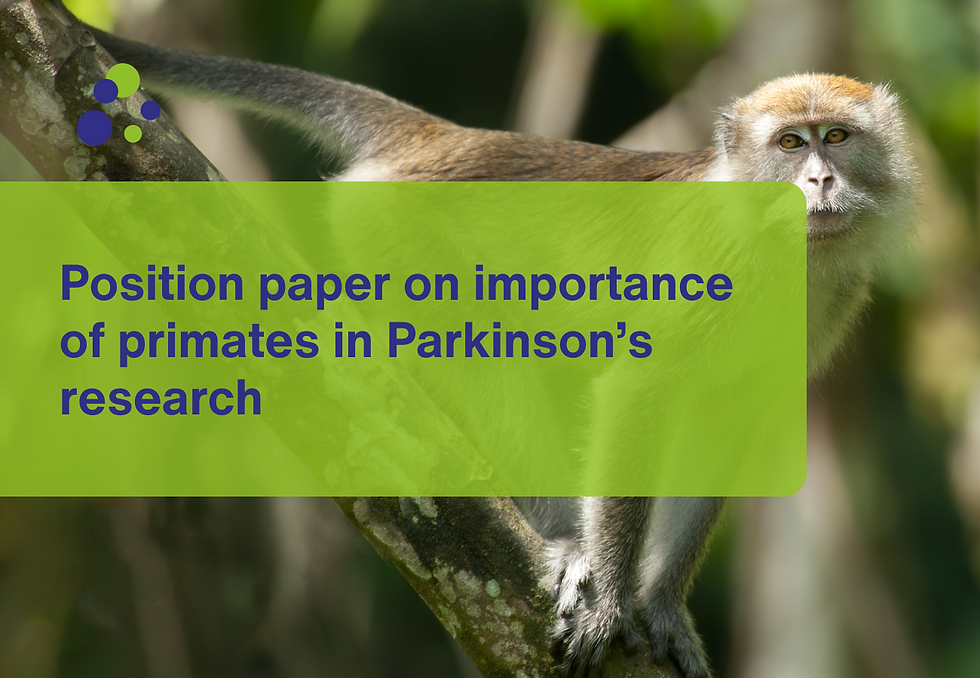Position paper on importance of primates in Parkinson’s research
- Aug 18, 2025
- 1 min read

Researchers across the globe wrote a position paper regarding the critical role of non-human primates (NHP) in advancing Parkinson’s disease and research on ageing.
The position paper, published in NPJ Parkinson’s Disease, is authored by Erwan Bézard and Benjamin Dehay from the University of Bordeaux and other researchers from the PDAGE international task force. They span institutions like EARA member The Hebrew University of Jerusalem and other institutions in Japan, France, Sweden, the USA, and China.
The document reviews how NHPs have been essential for breakthroughs, such as mapping brain circuits, understanding how deep brain stimulation relieves Parkinson’s symptoms, and more. These NHP studies translated directly into impactful patient therapies.
Parkinson’s disease (PD) research often relies on small animals like mice, whose biology differs significantly from ours. As NHPs share close genetic, anatomical, and behavioural traits with humans, making them currently irreplaceable in the development of new treatments and understanding ageing processes.
Learn more about why monkeys are needed in biomedical research in EARA’s feature here.



